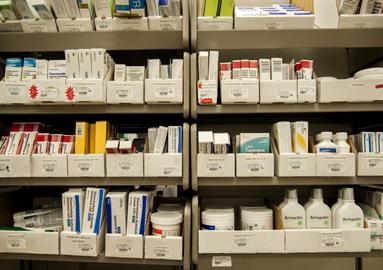On Friday, October 25, the US Departments of Treasury and State announced “a new humanitarian mechanism to increase transparency of permissible trade supporting the Iranian people.” Then, on October 27, Iranian Foreign Minister Zarif sharply criticized the new guidelines and claimed that they would hurt Iran’s medicine imports.
“Contrary to its deceptive claims, new US regulations will aggravate economic terrorism on ordinary Iranians,” tweeted Zarif. “Secretary Pompeo voiced his delusion that Iranian people must bow to US ‘if they want to eat’. Now, US Treasury is targeting not merely food but also our imports of medicine.”
After accusing Iran of supporting terrorism and money laundering, the US Treasury statement goes on to claim that the new mechanism “will help the international community perform enhanced due diligence on humanitarian trade to ensure that funds associated with permissible trade in support of the Iranian people are not diverted by the Iranian regime to develop ballistic missiles, support terrorism, or finance other malign activities...Furthermore, it protects the US financial system from Iran’s illicit financial activities by ensuring that US financial institutions are not exposed to the Iranian regime’s support for terrorist groups, advancement of its ballistic missile program, and its fueling of armed conflicts in Syria, Afghanistan, Yemen, and elsewhere.”
Iran has not joined international conventions that fight against money laundering and financing terrorism and, therefore, big international banks are very hesitant and slow to conduct transactions with Iran.
Medicine, medical devices, food and agricultural commodities — the so-called “humanitarian items” — do not fall under economic sanctions, but the US says that in some cases Iran has tried to bypass sanctions under the guise of buying such items. For instance, on October 15 the US Justice Department indicted the Turkish bank Halkbank for converting 20 billion dollars of Iran’s oil and gas revenue to gold, ostensibly to buy food and medicine “when in fact no purchases of food or medicine actually occurred.”
Senior Halkbank officers said the indictment “concealed the true nature of these transactions from officials with the US Department of the Treasury so that Halkbank could supply billions of dollars’ worth of services to the government of Iran without risking being sanctioned by the United States and losing its ability to hold correspondent accounts with US financial institutions.”
But beyond US actions, corruption in Iran also contributes to difficulties with importing humanitarian items. The government sells hard currency at a cheaper price for imports of medicine and medical devices but, in some cases, this cheap foreign currency has been used to import luxury items, electric appliances and even cigarette paper. Widespread cronyism and profiteering in Iran does not even spare the desperate need for medical necessities.
After the US imposed a new round of sanctions on Iran, Iranian officials announced that the Islamic Republic had reached 70 percent self-sufficiency in its production of medicine and the necessary ingredients needed for this production. American sanctions have undoubtedly made it more difficult for Iran to import medicine. However, importing humanitarian items, including the amount that would help compensate for the 30 percent shortfall in Iran’s production of medicine — especially from European countries — should not be any more difficult than it has been to export oil, which Iran manages to do despite US sanctions banning it. Iranian officials have claimed that they have found “many ways” to bypass the sanctions on exports of Iranian oil [Persian link]. So how about they allow some ways to import badly-needed humanitarian items instead of finding ways to bypass sanctions in the service of corruption?
Related Coverage:
How do Sanctions Affect Safe Delivery of Food and Medicine?, November 8, 2018
The Cost of Iran’s Stubborn Refusal to Join International Treaties, November 5, 2018
The Humanitarian Cost of Sanctions on Parsian Bank, October 23, 2018
Iran’s Medicine Shortage: More About Corruption and Mismanagement Than Sanctions, September 7, 2018
visit the accountability section
In this section of Iran Wire, you can contact the officials and launch your campaign for various problems





















comments